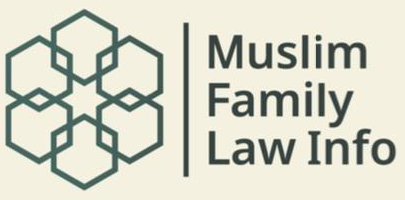Muslim Marriage FAQs
1. What is Nikah?
This is one of the most important contracts a Muslim couple enters.
Nikah is essentially a contract which confirms marriage and allows an intimate relationship between a man and a woman under Shari’ah or Islamic Law.
It was narrated that ‘Uqbah ibn ‘Aamir (RA) that the Messenger of Allah (SAW) said: “The conditions which most deserve to be fulfilled are those by means of which intimacy becomes permissible to you.” (Narrated by al-Bukhari, 2520; Muslim, 2542)
Zawaj is the term used in the Qur’an to mean a pairing, and is often used to refer to marriage between a husband and wife.
2. How do you enter a valid Nikah?
- Two witnesses
- An offer from one party and acceptance from the other
- Consent to the marriage from both parties
- Mahr from the groom to the bride.
In addition, both parties can define additional terms and conditions of the contract.
Both parties should request and keep copies of all paperwork.
3. What is the minimum age at which I can get married?
This means that 16 and 17-year-olds are no longer allowed to marry or enter into civil partnerships, even with parental consent.
This also means Nikah marriages are prohibited unless the parties are aged 18 or above, as the law applies to all marriage ceremonies, whether legally binding or not.
Anyone found to be involved in arranging child marriages could face a seven-year jail sentence.
In Scotland and Northern Ireland, you must be 16 years or over to get married. However, it would be an offence for a Registrar to allow a child under the age of 18, who is habitually resident in England and Wales, to marry in Northern Ireland.
4. Would a civil wedding in a Register Office count as a Nikah?
- Proposal (ijaab) from the female (herself or her guardian/agent whom she appoints on her behalf) or male, and acceptance (qabul) from the other party which is clearly heard and understood. This is consent.
- The presence of two witnesses who understand the proposal and acceptance.
- The Mahr which should be agreed prior to the marriage.
If the above-mentioned criteria are met, a civil marriage ceremony carried out in a Registry Office could also qualify as a valid Nikah according to Islamic law.
However, civil ceremonies cannot have any religious content or connotations so would have to simply be the consent to marriage in the presence of witnesses.
It is Sunnah of the Prophet Muhammad (SAW) to begin the marriage contract with a sermon (khutba) that includes praise of Allah, salutations on His Messenger, and Qur’anic verses highlighting the importance of taqwa (God-consciousness). It is also Sunnah to announce the marriage publicly. Holding the ceremony in a mosque helps to fulfil this and for these reasons, many choose to have two separate ceremonies of marriage – both Islamic and civil.
5. My Nikah was done online/on the telephone/via text messages. Is it valid?
- mother
- adopted mother
- former adoptive mother
- Proposal (ijaab) from the female (herself or her guardian/agent whom she appoints on her behalf) or male, and acceptance (qabul) from the other party which is clearly heard and understood. This is consent.
- The presence of two witnesses who understand the proposal and acceptance.
- The Mahr which should be agreed prior to the marriage.
A Nikah performed online can be valid if all the necessary criteria for a valid Nikah were present:
The witnesses need to hear the couple’s offer and acceptance. This can also be done by reading out an offer of marriage message sent via some electronic method, and accepting it audibly in the presence of the witnesses.
Such a method of Nikah is expected to be exceptional only, and not a frequent or common occurrence.
6. If I have (or previously had) my Nikah marriage outside of the UK, is my marriage legally valid and do I still need to have a legal marriage in the UK?
‘Only a UK court of law can determine whether a particular marriage is valid under UK law. It is not possible to register in the UK a marriage celebrated in a foreign country. Generally speaking, however, if a ceremony is considered valid in the country where the ceremony was performed; both parties to the marriage had the capacity to marry under the law of the country of domicile; and both parties of the marriage consented to marry the other, then the marriage is likely to be recognised in the UK.’ www.gov.uk











